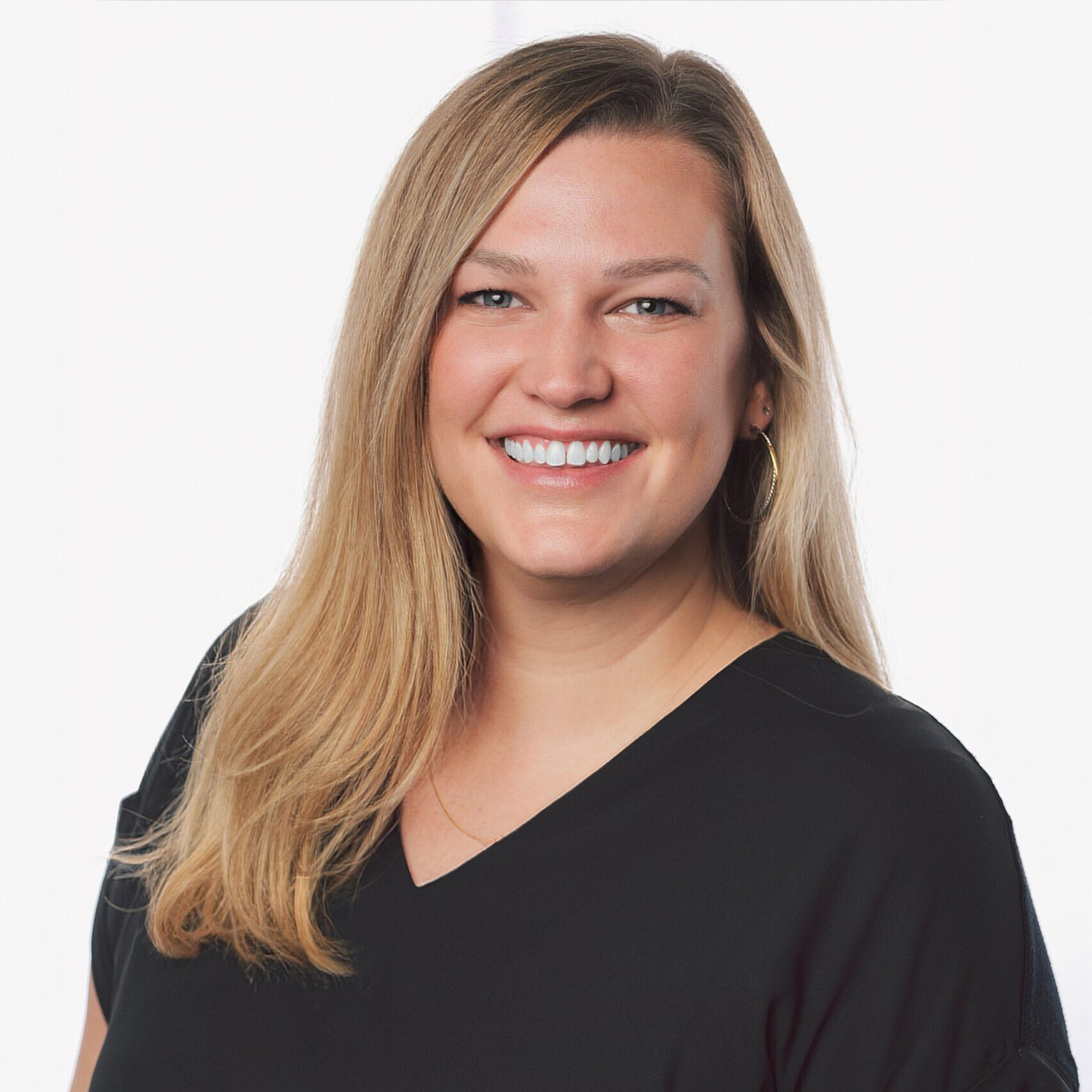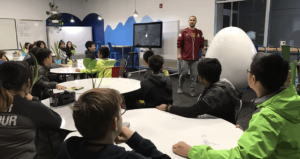Fun in the Sun: Education Innovation Summit 2013

By Caroline Vander Ark and Carri Schneider
It’s been a great week at Education Innovation Summit (#EISummit). Our team enjoyed thoughtful breakout sessions, nice receptions and hallways conversations. For those traveling from colder climates the Arizona sun seemed to set a gleeful tone for the conference. There were lots of great conversations about building the education system of tomorrow, not just trying to fix schools today. We appreciated forward leaning speakers that highlighted the need to elevate the teaching profession by blendeding classrooms and allowing teachers to teach again, not babysit. As always, we were struck by the amount of passion from education leaders to not only transform learning but also level the playing field creating equity and excellence for all of America’s students. Its a bummer the closing keynote, Andy Kessler did not echo the thoughtful discussions about elevating the teaching profession that we heard during the week. Its been clear from the backlash from his speech that leaders at this conference do not support his iPads can replace teachers theory (see Stacey Childress’ blog on the subject).
Speakers like Jim Shelton, reminded us we have a lot of work to do but dedicated people like Bill Milliken, founder of Communities In Schools, who was awarded the Lifetime Achievement in Social Impact on Wednesday night, are dedicated to providing great learning options for every student. If you missed any of the sessions, or couldn’t join in person check out a few recaps of our favorite sessions below.
Work Hard, Be Nice.
KIPP Co-Founder, Dr. Mike Feinberg closed out the morning keynote on Tuesday with a passionate speech about equity in education. “We need great teachers and great tools. It’s not an either/or” said Feinberg. Components of KIPP success include two basic ingredients says Feinberg, “great teaching and more of it.” Feinberg also highlighted KIPPs pillars of success;
- More time
- Power to lead
- High expectations
- Choice and commitment
- Focus on results
If you put these pillars in place you will have a system where kids will succeed said Feinberg. We all need resist the urge to say “yes, but” urges Feinberg and instead find solutions and empower school leaders.
MOOC Conversation.
Michael Moe moderated a lively MOOC lunch keynote Wednesday featuring Anant Agarwal, edX, John Coates, Instructure, Andrew Ng, Coursera, and Felice Nudelman. Ng passionately suggested MOOCs should remain cost fee, “I would go to extreme length to keep MOOCs free to ensure accessibility for the most vulnerable.” Ng says the number one rule is do what’s best for the student. “MOOCs are giving students more ways to distinguish themselves,” said Ng.
“Starting June 1st everything will be open. You can host it yourself and use our course authoring system,” said Agarwal of edX the MOOC platform. Agarwal and Ng agreed the role of professor will be even more important with MOOCs. Facilitated knowledge processing becomes more important. “The role of instructors will be to move up the value chain and actually teach,” said Ng.
Ng left the audience with a great final thought, “I think the right to a great education is a human right.”
Scoring ROE.
Deborah Quazzo moderated an all-star panel with Stacey Childress, Jonathan Harber, Jose Ferreira and Elizabeth Stock. The conversation centered on how we score “return on education.” Ferreira described how it’s getting easier in the new “world of transparent outcomes” that gives us a richer sense of what works best for each student. Childress raised an important “transparent for whom?” question, highlighting how different levels of access are meaningful to different users (we wrote about this in the DLN “Data Backpacks” paper). Harber cautioned about too narrow of a focus on content consumption, with a reminder of the importance of creation in learning. The panel agreed that we no longer have to rely on narrow data as a proxy for “did they learn it;” we now have the data-rich environment to better assess learning. What’s needed next, according to the panel, is agree on what ROE means, shine a light on the real problems, move past point-solutions, create broader solutions, and focus on indicators that point to ROE.
Speaking of ROE, the inaugural ROE Awards were given out Wednesday night. Winners included 2U, Chegg, Edmodo, Knewton, System 44 and Read 180 (Scholastic), Florida Virtual School, EdSurge, Dreambox Learning, Teachscape and Lynda.com.
Neuro to Hero.
Gunnar Counselman, CEO of Fidelis led a super smart panel of nuero all stars that included Matthew Peterson, MIND Research Institute, Bob Bowen, Scientific Learning, Ellen Balaguer, Knowledge Factor and Kunal Sarkar, Lumosity. “Stop talking at kids and showing them videos and start interacting with them and challenging them,” said Peterson. The panel passionately discussed needing to allow students to learn how to learn, not just consume information. “We try to instill frustration. Over time that frustration turns into a thirst for challenge,” says Peterson his program ST Math.
The panel discussed the importance of difficulty and challenge when introducing new learning concepts to students. “The lifelong pursuit of learning challenges needs to be created for students,” said Balaguer.
The question “what do with $50 million” opened a lively debate about needing more money for research or scientific application of the knowledge. The panel was split between the need for more science research or actual application of scientific findings. “Foot in today and foot in tomorrow,” argued Balaguer stating both research and application are needed. “We have a long way to go,” says Peterson as the panel concluded.
lynda.com: Create or Consume?
Lynda Weinman, co-founder and executive chair of Lynda.com, closed out the morning keynotes Wednesday describing how Lynda.com has transformed itself from a garage VHS based business to a thriving digital learning site striving to change the world of digital/online learning. Currently, Lynda.com provides access to tens of thousands of people learning on their site at the same time, while having access to thousands of different types of lessons. Lynda wrapped up her speech proposing a question to educational professionals, “do you want to be a consumer or creator?” (For more see our Lynda.com feature).
Four Johns and one Ben
Digital Learning Now!’s John Bailey moderated a panel featuring three other Johns (Chubb, Danner, and Dragoon) and Ben Rayer exploring “The Nuclear Option,” asking “Should We Just Blow up the Current System and Start from Scratch?” Danner started the conversation noting, “Technology already changed education; we just didn’t notice,” and later spoke to the ability of technology to allow teachers to get back to teaching. Chubb emphasized the role of public policy, noting the role policymakers play in driving change. Looking to the future, Bailey asked, “What happens when students show up with their own learning?” Of the evolving system, the panel agreed that there’s a mix of fear and hope among teachers, but students and parents are definitely starting to demand more options.
The panel agreed that a lack of technical standards and barriers to access have been some of the biggest implementation challenges for schools.
Stay tuned for a special Summit EdTech 10 on Saturday and check out our other summit blogs:
- 30 Years Coming, The Revolution is Here
- Modern Family: the Confusing & Promising Context of U.S. Education
- Davos in the Desert
Disclosures: Digital Learning Now!, FLVS, Dreambox, MIND Research Institute are Getting Smart Advocacy Partners. Edmodo is a Learn Capital portfolio company where Tom is partner.







0 Comments
Leave a Comment
Your email address will not be published. All fields are required.